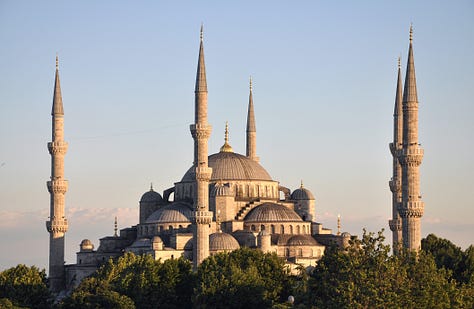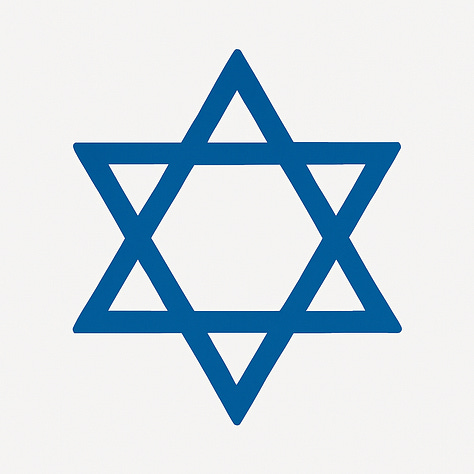Uncovering the Origins, Overlaps, and Divergences of Islam, Christianity, and Judaism



A Common Claim to the God of Abraham
Islam, Christianity, and Judaism are often grouped together under one label: the Abrahamic religions. This isn’t just a category of convenience, it reflects a deep historical claim that all three trace their spiritual roots to the same prophetic figure: Abraham, or Ibrahim in Arabic.
Each religion reveres him. Each calls him righteous. Each claims to uphold the faith he followed. But beyond that surface, their paths split. Their scriptures differ. Their understanding of God diverges. Their definitions of salvation, prophethood, and worship sometimes contradict.
What happened?
If they all come from the same God, why are the messages so different?
This series was created to ask those questions—not with emotion or bias, but with evidence, scripture, and historical record. The goal is not to declare who is right or wrong based on opinion. It is to uncover what has remained pure, what was changed, and what the original truth actually was.
Abraham in the Three Traditions
In Judaism, Abraham is the patriarch of the Israelites through his son Isaac, the first to form a covenant with God. In Christianity, he becomes a spiritual symbol of faith used to validate salvation through belief rather than works. In Islam, he is not only the ancestor of prophets but the model of pure monotheism: one who submitted completely to God, rejected idol worship, and rebuilt the Kaaba with his son Ishmael.
The Qur’an speaks of Abraham clearly:
“Abraham was neither a Jew nor a Christian, but one inclining toward truth—a Muslim [one who submits to God]. And he was not of the polytheists.”
(Surah Aal Imran 3:67)
The Bible echoes his righteousness:
“Abraham believed God, and it was credited to him as righteousness.”
(Romans 4:3)
Despite these common reverences, the theological conclusions each faith draws from Abraham’s legacy are profoundly different. And it’s those differences—not just of story, but of meaning that shape everything that followed.
What They Share And What That Actually Means
All three religions claim to believe in one God, the God of Abraham.
They affirm the reality of prophets, divine revelation, moral accountability, and life after death. All three hold Jerusalem as sacred. All three claim to teach truth.
But the definitions behind these claims vary:
Is God one, or triune?
Are prophets sinless messengers, or flawed humans?
Is salvation earned, gifted, or inherited?
Was Jesus the Son of God, or a prophet of God?
Was the law fulfilled and abolished, or reaffirmed and preserved?
These are not surface-level questions. They reach the heart of what each religion teaches about who God is, what He wants, and how truth was transmitted to humanity.
From Unity to Divergence: Where the Beliefs Split
The deepest theological rift lies in the definition of God.
In Judaism, God is One and indivisible. The Shema, the central Jewish declaration proclaims: “Hear, O Israel: The LORD is our God, the LORD is one.” (Deuteronomy 6:4)
In Christianity, God is still one but redefined as a Trinity: Father, Son, and Holy Spirit. Though this word does not appear in the Bible, the doctrine became foundational through Church councils centuries after Jesus.
In Islam, the message is absolute: God is One, without partner, son, or likeness. He is not born, and does not beget.
“Say: He is Allah, [who is] One. Allah, the Eternal Refuge. He neither begets nor is born, nor is there to Him any equivalent.”
(Surah Al-Ikhlas 112:1–4)
These views are not compatible. They cannot all be equally true. And yet all three religions claim to carry the legacy of Abraham who worshipped a God that was one, not divided.
Which definition matches Abraham’s God?
This series will investigate that claim.
Scripture: Revelation or Redaction?
Each religion claims its scripture was revealed by God. But not all scriptures were transmitted the same way.
The Torah, traditionally said to be given to Moses, has been shown through Jewish and academic scholarship to be a composite of multiple unknown sources (JEDP), written and edited over centuries. Large portions were finalized after the Babylonian exile. Rabbinic commentary today often overrides the literal Torah in Jewish legal practice.
The Bible, especially the New Testament, is a collection of writings composed over decades—often decades after Jesus was gone. There are multiple versions. Books have been added, removed, and debated. The Church decided what was "scripture" and what was not.
Even the Bible acknowledges its human compilation:
“Many have undertaken to compile a narrative of the things which have been fulfilled among us…”
(Luke 1:1)
The Qur’an, by contrast, presents itself as a revelation recited by the Prophet Muhammad (s.a.w) over 23 years, memorized by companions, and compiled into one text during the caliphate of Abu Bakr and Uthman within the Prophet’s generation. It has never undergone revision. It remains in its original Arabic. And it is memorized word-for-word by millions to this day.
These differences matter.
If God gave a message to guide humanity, can we trace what He said?
Or are we reading the words of men about God, instead of the words of God Himself?
Why This Series Exists
This is not a religious debate. It’s a historical and spiritual investigation.
What was revealed?
What was changed?
What was lost?
What still remains?
Each article in this series will explore a specific topic from the nature of God to the status of women, from Jesus to the Sabbath, from salvation to the end times using full scripture, authentic history, and logical analysis.
There will be no cherry-picking. No twisting. No hiding.
We will quote the Qur’an in full. We will quote the Bible in full. We will quote the Torah and Talmud. And we will compare each message in context—not just to expose contradictions, but to search for what remained consistent and pure.
Conclusion: The Search for Unaltered Truth
Truth doesn’t fear investigation. It invites it.
If Islam, Christianity, and Judaism all claim to be from the same God, then that God would not contradict Himself. His message would not evolve based on culture or empire. His commandments would not depend on councils, translations, or politics.
So what happened?
That’s what we’re going to find out.
Because the truth is not hidden. It is just buried and Veins of Truth was built to uncover it.
“So woe to those who write the Book with their own hands and then say, ‘This is from God,’ to exchange it for a small price...”
— Qur’an 2:79“Do not add to His words, or He will rebuke you and prove you a liar.”
— Proverbs 30:6
This is not the end. It’s the first door.
And what lies beyond it will shake everything we thought we knew.

